#generalfeldmarschall
Explore tagged Tumblr posts
Text

It's been some time since I drew Walter Model.
57 notes
·
View notes
Text
sometimes I love to think of how the Generalfeldmarschalls are just .... human. beneath their military personality and after all the atrocities they may have done. and no, this isn't me justifying the n4zi's horrendous crimes, but sometimes I just think that people who wrote books abt them need to see that side of them too, like okay their military was great but c'mon, let's not forget about their interesting personality!
and some of the facts I often think are:
that my precious baby Model was a member of literary society during his youth excelled in Greek, Latin, and History (and some also say in Poetry — I wonder if he ever wrote a poem).
Von Leeb loved to collect stamps!!! and very fond of his family's chronicles.
There is a story in the Keitel Family that Wilhelm almost went to tears when he gave up his hope to become a farmer in order to stay in the military to support his family.
Von Reichenau was fond of German literature and classical music. He brought to the battlefield in the Polish campaign a small volume of a selection of German poetry.
Von Rundstedt loved detective thriller books but was shy to show it. He regularly read the novel in an open drawer which could be quickly closed whenever anyone came in to see him.
Rommel and Schörner's rivalry. David Irving wrote: "One of Schoerner’s frequent pranks was to plant silver cutlery from the mess in the pockets of guests at formal banquets and watch their embarrassment when the spoons and forks fell out. Rommel, when it happened to him, was not amused. Their rivalry persisted to the end. It was generally friendly, and once, after Schoerner had made a name for ruthlessness bordering on brutality in the Crimea ... Rommel solicitously took him aside and candidly urged him to try a different method."
Von Bock seemed to be very fond of boys —not in the negative way. In Sudetenland, he once "took his twelve-year-old son, dressed in a sailor suit, along in his car "to impress on his son the beauty and exhilaration that lie in soldiering."". In 1940, he sent a postcard to the same son, Dinnies von der Osten. Also, one of Fedi's last wishes to von Manstein was that he should take care of the 16 year old Dinnies after his death, which Erli did until his capitulation. Not that it matters, but Dinnies was not his biological son. It was his second wife's son from her previous marriage. I think it shows how much Fedi cared for the boy. Then, his diary entry on 8/9/39: " ... I was able to present the first Iron Cross of this war to a Private First Class of the 94th Regiment who acted bravely at Graudenz. The young man beamed; too beautiful these lads!". He's just ... adores his troops (and youngest stepson) so much :')
Wolfram von Richthofen always found studying language to be painful. His foreign language grades were either a borderline pass or an “unsatisfactory.” And "he was a somewhat indulgent father. When he returned home during the war years, Jutta would relate some minor misbehavior of the boys and ask that Wolfram, as their father, discipline them. Wolfram’s reply was usually something on the lines of “boys will be boys” and “they’re good kids—let’s give them a break.”". Then, Wolfram once described the Luftwaffe as “the army’s whore”.
Von Manstein's writing is something else. Even if he did lie about the breakout order in Stalingrad, I still enjoyed his memoirs, to be honest. His words are beautiful, the way he tells a story and the allusions — I got the impression that he was a highly educated person by reading Lost Victories.
Also, von Küchler and Busch's rivalry (which was bitter, unlike the Rommel-Schörner's one), which unfortunately I couldn't remember which book explained that and couldn't find it yet :(
Sources:
Hitler's Generals - Edited by Correlli Barnett
Generalfeldmarschall Wilhelm Ritter von Leeb: Tagebuchaufzeichnungen und Lagebeurteilungen aus zwei Weltkriegen
The Memoirs of Field-Marshal Wilhelm Keitel: Chief of the German High Command, 1938-1945 - Edited by Walter Görlitz
Same as 1
Lost Victories by Erich von Manstein
The Trail of The Fox by David Irving
Generalfeldmarschall Fedor von Bock: The War Diary, 1939-1945 || Manstein: Hitler's Greatest General by Melvin Mungo || World War: The Three Vons (Time Magazine, August 18th, 1941
Wolfram von Richthofen Master of The German Air War by James Corum || Stopped at Stalingrad: the Luftwaffe and Hitler's Defeat in The East, 1942-1943 by Prof. Joel Hayward
#don't judge me okay?#this is what happened when you majoring englit but also loves ww2 history#and how fortunate that I love studying about the German side — people will think I support their ideology!#spoiler alert: i don't#yeah nvm#txt dari ro#generalfeldmarschall#heer#3rd reich#ww2
49 notes
·
View notes
Text

Paul Ludwig Hans Anton von Beneckendorff und von Hindenburg (* 2. Oktober 1847 in Posen; † 2. August 1934 auf Gut Neudeck, Ostpreußen) war ein deutscher Generalfeldmarschall und Politiker. (wikipedia)
2 notes
·
View notes
Text
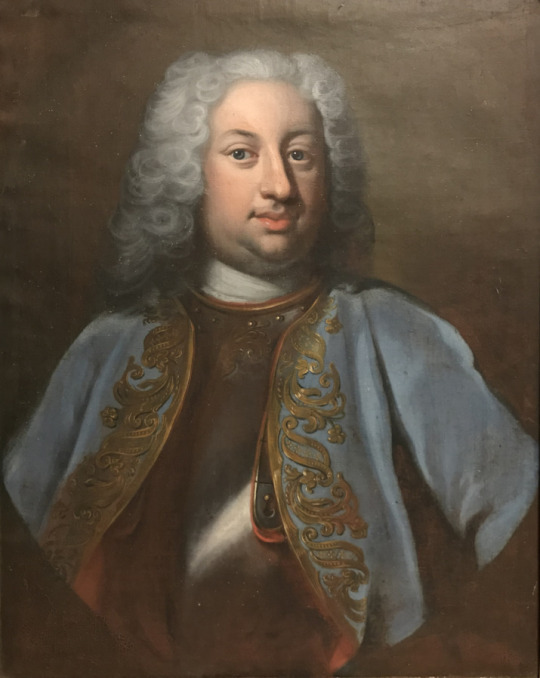
Maximilian, 1689-1753, Prince of Hesse-Kassel
Artist: Georg Engelhard Schröder (Swedish, 1684–1750)
Date: 18th century
Medium: Oil painting
Collection: Nationalmuseum, Stockholm, Sweden
Maximilian of Hesse-Hassel
Maximilian of Hesse-Kassel (28 May 1689 – 8 May 1753) was a prince of Hesse-Kassel and a Generalfeldzeugmeister, Generalfeldmarschall and finally Reichsgeneralfeldmarschall in the army of the Holy Roman Empire.
Maximilian was the ninth son of Charles I, Landgrave of Hesse-Kassel (1654–1730), and his wife, Marie Amalia (1653–1711), daughter of Jacob Kettler, Duke of Kurland.
#portrait#maximilian of hesse-hassel#half length#prince of hesse-kassel#german prince#german history#blue coat#wig#german monarchy#painting#oil painting#fine art#artwork#swedish culture#swedish art#georg engelhard schroder#swedish painter#european art#18th century painting#nationalmuseum
7 notes
·
View notes
Note
do you have any ge lore specifically the german colonial empire but if you dont have anything for them yet can we hear about ge in general 🥹
( π . π ) uuff ... sadly I don't have much for them as of right now so here's some general information on ge
ge's name is wolfram. I thought it'd also be fitting for him as I do associate him with canines embarrassingly enough and because — as much as I'd hate to say it, — he's more than capable as a person. a bit lacking in morals clearly, I'll be honest wolfram doesn't have a good relationship with his birth father maybe that's why /j
He didn't have much of a title in the military but did he manage to rise to Generaloberst, this was under the Generalfeldmarschall, Prussia/Dietrich — who was then honorably discharged, leaving Wolfram to take over his role.
this is really basic information for him, so um, here's a small fun fact — he had a horse named Eisenfeld. it died.
6 notes
·
View notes
Text
Gabriel - WOLVES ON ICE
Location: Northern Boreal Zone, 300 km Northwest of Castle Erebor
Time: 04:52 GST, 20 September 3153
Operation: Final readiness drill—Joint Winter Warfare Exercise
The forests of Merdengard lay silent and ghostly beneath a blanket of snow, ancient conifers stretching like pale sentinels into the twilight sky. The dawn was still a whispered promise; stars lingered stubbornly above the horizon as if reluctant to cede ground to daybreak.
Hidden among the towering trees, nearly invisible beneath patterned layers of white and frost-blue camo, over five hundred BattleMechs moved with cautious, methodical purpose.
Inside the cockpit of his Kodiak, named Mánagarmr, Generalleutnant Margrave Gabriel Bisclavret von Thiess III keyed his comm, his deep voice rumbling calmly across the encrypted channel reserved for command officers.
"All units, this is Generalleutnant von Thiess. Stand by for exercise commencement. Confirm readiness."
Across dozens of comm channels, responses rolled back swiftly and clearly.
"Sixth Royals confirm, Generalleutnant," came Generalfeldmarschall Olivia von Arnsburg's authoritative tone, sharp and unwavering from inside her massive tripod Ares, named Fenrir’s Judgement. Her cerulean eyes flicked across sensor readouts, calm and calculating. "All battalions report green. Awaiting your command."
"Merdengard MTM Regiment is green across the board," replied Generalleutnant Markus Elst crisply. "Standing by."
Star Colonel Ze'ev Winson did not open his eyes—he had no need. Cocooned inside a sensory cradle, encased in his specialized suit of Elemental interface armor, he was one with his Skinwalker II. With enhanced imaging implants blazing softly against his pale skin, the heavy 'Mech’s sensors became his senses—its pulse laser barrels his hands, its armor plates his skin.
The line between warrior and machine was a dream—soft, pliable, indistinct.
"The Omega Provisional Cluster stands ready," Ze'ev's voice murmured, as even and regal as ever, though his lips barely moved inside the interface harness. "My warriors hunger for battle—even if it is only a simulation."
Gabriel acknowledged all, then switched smoothly to their private, intimate comm frequency.
"Everyone holding up well?" His voice softened imperceptibly, losing its martial edge.
"Nothing like cold morning air and imminent simulated carnage," came the wry reply from Leutnant Anika Dray aboard her lithe Wolfhound IIC, the famously unique Grinner – technically, it was Gabriel’s personal ‘Mech, but he had the sense to recognize it was best used as a combat asset, not a hangar queen. Her 'Mech shifted its weight from foot to foot, as eager and restless as its pilot. "Beats coffee."
"No, it does not," Olivia replied flatly, but her tone was touched by warmth.
From inside Gabriel’s comm suite, a voice interrupted gently. "Castle Erebor observing," Thalia Marten’s familiar voice filtered through clearly, a comforting anchor from far away. "You have my undivided attention. I will be taking notes, Gabriel. Try to impress me."
"I always do," Gabriel rumbled affectionately.
In hir Cyclops, nicknamed Bifrost, Stabshauptmann Eike Fischer adjusted a control slightly, glowing with tactical data flowing seamlessly through hir neural implants. Behind hir, Stabskorporal Kaia Erzberger sat tucked into the drone station, a cluster of tactile controls and monitors flickering with precise readiness.
"Confirming drone array ready, Margrave," Eike reported crisply, professional once more. Ze smiled faintly when Kaia’s hand brushed hir shoulder in silent, encouraging support.
Aboard Fenrir’s Judgement, Vizeleutnant Lyra Channing rapidly completed her last system checks. Her bubbly voice lit the crew channel. "Olivia, heat sinks optimal, weapons cycling beautifully. Veika?"
Oberstabsfeldwebel Veika Morr’s low voice, steady as stone, drifted down from her gunnery station. "Gauss and PPC capacitors at full readiness. All ordnance locked."
"Outstanding," Olivia murmured softly to them alone. "Your work is flawless, as always."
The brief moment of warmth ended as Gabriel’s powerful voice returned, a wave of calm authority washing over the line. "Commence Operation Snowblind. Advance to contact and execute training plan Gamma-One."
A symphony of affirmations flooded the channels as 'Mechs moved in perfect choreography through dense snow and ice-crusted forests.
From Castle Erebor’s command center, Thalia observed silently, her hands clasped behind her back, watching the holographic displays bloom with data. Her eyes lingered on the signals of her lovers. Each name a heartbeat, each heartbeat a loved one.
"Good hunting," she whispered, knowing they could not hear.
Back in the field, Gabriel watched his displays, content as the vast war machine of four separate commands rolled forward as one cohesive force.
"All elements," he intoned, voice deep and resonant, "begin combat maneuvers."
Dawn crept over the frosted forest, washing the landscape with pale shades of lavender and cold, metallic blue. Through the ghostly trees, tons of armor moved as softly as falling snowflakes—Star Colonel Ze’ev stalking forward, his motion eerily fluid, almost organic. Under the influence of the EI, he had ceased to consciously think of himself as separate from the great machine he piloted; he was his ‘Mech now—its limbs his own, its senses integrated seamlessly with his brain. Every subtle shift of armor plating, every twitch of the torso-mounted pulse lasers, felt as natural as breathing. To observers, the Skinwalker II moved effortlessly through the forest like a predator on the hunt.
A target flickered ahead—an enemy Mech from the opposing training group. Ze'ev smiled internally, the Skinwalker's targeting reticle shifting effortlessly. The opposing 'Mech pilot saw nothing, even at fifty meters. Ze'ev was the snow itself—silent, deadly, perfect camouflage in motion.
He opened a direct, private channel. "Sable, I am in position. Your move."
A soft chuckle drifted over the comm, warm and amused. "Copy that, Glowstick. Standby for chaos."
A blur of motion tore across the clearing—Grinner moving at lightning speed, jump jets flaring brightly through the mist. Her voice carried mischief. "Contact! Enemy lance in sector 3-Bravo. Marking targets."
Ze'ev felt her data tag appear instantly on his HUD. "Targets received. Thank you, Anika."
"Anytime," she purred back.
Further back, in the hulking form of his Kodiak, Gabriel keyed the main command channel. "All units, contacts at sector 3-Bravo. Execute plan Delta-Four."
Olivia responded without hesitation. "Sixth Royals, engage targets at maximum simulated range. Oberstabsfeldwebel Morr, fire pattern Sigma."
From the elevated gunner's seat in Fenrir’s Judgement, Veika's steady voice replied: "Confirmed, Generalfeldmarschall. Sigma locked, gauss up. On the way."
Veika’s whisper-soft Old German mantra floated gently across their internal comm. Olivia’s mouth curved slightly in appreciation. Veika did not miss.
"Bifrost, sensor sweep and drone advance," Gabriel ordered.
Eike’s fingers danced elegantly over hir consoles. Behind hir, Kaia bent forward, immersed in tactile drone controls, her amber eyes intent. "Deploying UAV flight now," she murmured, leaning forward so her warmth pressed lightly against Eike’s shoulder. "Scanning sectors three through six."
Eike smiled faintly. "Well done, Kaia. Good eyes."
The drones launched smoothly from Bifrost’s dorsal pods, gliding gracefully above the trees, relaying visual data streams directly into Kaia’s helmet. She exhaled softly, feeling the gentle thrill of connection—the birds were her senses now, her extended hands and eyes.
"Multiple OpFor clusters identified," Kaia confirmed calmly. "Sending tactical overlays to all units."
At Castle Erebor, Thalia watched the data streams blend effortlessly onto the main holotank. Her heart swelled quietly with pride.
Ze'ev took Kaia’s data, weaving it instinctively into his own view. He shifted silently through a gap in the trees, almost invisible, pulse lasers aligning. The Skinwalker’s torso twisted gracefully, fluid and predatory—exactly mirroring Ze'ev’s subtle body movements.
A perfect extension of himself.
A brilliant volley of simulated energy pulses flashed across the snow, tagging the enemy BattleMech with virtual hits. The target stopped dead, signal lights flashing—simulation-confirmed kill.
"Kill registered," Ze’ev murmured calmly, as if discussing the weather.
Gabriel’s voice filled his ear. "Excellent shot, Ze’ev."
"Thank you, Gabriel."
Lyra’s bubbly tone came through Olivia’s internal comm from Fenrir’s Judgement's technical station. "All systems green, Liv. Heat nominal, energy reserves optimal. And that was one sexy gauss shot, Veika."
Veika, deadpan, replied simply: "Thank you, Lyra."
Olivia allowed herself a small, fond smile at their quiet camaraderie. "Maintain focus," she said evenly. "There are still more targets."
Anika’s cheerful voice crackled back in comms. "Gabriel, I've stirred up the hive. Four hostiles in pursuit. Leading them to your position—hope you're feeling sociable."
Gabriel's rumbling chuckle resonated through everyone's speakers. "We are ready for guests, Leutnant Dray."
From behind the lines, Markus Elst’s voice broke in respectfully. "MTM Regiment deploying screening units. Confirming your perimeter secure, Margrave."
"Excellent, Markus," Gabriel acknowledged warmly.
Eike opened a private comm to Gabriel. "They are adapting quickly. Better than expected."
"They know what is at stake," Gabriel replied. "Good. We must be sharp for TOUCHDOWN."
The morning deepened, the sky brightening to a hard, crisp blue. The battlefield simulation intensified, the combined forces flowing seamlessly through drills, maneuvers, and combat scenarios that tested their limits.
In the Cyclops cockpit, Kaia’s voice was tender, intimate in Eike’s ear. "Are you enjoying yourself, love?"
Eike smiled, unseen by anyone else. "More now than ever."
In Fenrir's Judgement, Lyra laughed softly. "Liv, remind me after this to give you a proper victory kiss."
"Do not distract me, Lyra," Olivia replied—voice stern, eyes sparkling warmly.
Gabriel watched the holomap thoughtfully, a calm satisfaction settling over him. They were ready, and he was proud. His warriors—his loves—were ready for what was coming. He keyed their private polycule channel, voice low and steady, filled with quiet authority and affection.
"Well done, everyone. Now finish strong."
At last, the pale dawn had fully broken, flooding Icefall Ridge with crystalline radiance. The ridge itself—a massive, ice-glazed stone formation—rose sharply from the forest, crowned by an SLDF-built mock fortress shimmering with frost and sunlight.
Gabriel’s Kodiak paused just behind the treeline, its arctic camouflage perfectly masking its massive bulk. He studied the simulated fortress on his monitors carefully. His deep voice cut gently but firmly through command comms.
"All units, we have reached final objective: Icefall Ridge. Prepare assault formations."
A chorus of disciplined acknowledgments flowed back. His focus narrowed, assessing the disposition of friendly and opposing forces.
Olivia’s voice sounded first, calm and precise. "Sixth Royals confirm artillery simulation ready. Awaiting command to initiate suppressive barrage."
"Hold for my order," Gabriel said.
"Confirmed, Generalleutnant."
Eike’s softer tones came next, quick and composed. "Drone flights confirm enemy strength and positioning. Uploading now."
Instantly, detailed tactical overlays appeared on Gabriel’s holomap. He nodded slightly in satisfaction. "Exceptional work."
Inside Bifrost’s cockpit, Eike turned slightly and squeezed Kaia’s hand. "Well done, Kaia."
Kaia leaned forward warmly. "My pleasure. I have your back, love."
Ze’ev’s Skinwalker II paused effortlessly, seemingly melting into the pale woodland backdrop. Within his EI harness, Ze'ev breathed slowly, feeling every centimeter of terrain, every pulse of his ‘Mech’s lasers as extensions of his own being.
"Gabriel," Ze’ev murmured gently over their private channel, "The Omega Cluster is positioned for a flanking assault. Awaiting your order."
Gabriel smiled softly at the familiar voice. "Stand ready, Ze’ev."
Anika’s Wolfhound crouched nearby, sleek and poised for motion. "Gabriel, I’m good to go," she teased lightly. "Say the word and they’ll never see me coming."
"Patience, Anika," Gabriel chuckled gently.
In Fenrir’s Judgement, Olivia spoke evenly: "Veika, Lyra, confirm final status."
Lyra’s voice was bright, cheerful even amidst tension. "Heat and power stable, Liv. Fenrir’s ready to pounce."
Veika whispered her mantra softly, then calmly replied: "Weapons locked and steady."
Olivia inclined her head slightly. "Good. Stand ready."
Gabriel took one final breath, visualizing the battle’s flow, then opened the full command channel. "All units—commence objective assault."
Staring out of the cockpit at the enemy's defensive line, Olivia’s voice cracked sharp and clear, on a comm line to the artillery battalion in the rear: "Hateful, this is Ice Queen, fire mission, over."
"Ice Queen, this is Hateful, fire mission, out," responded the Fire Direction Center.
"Grid 347 689, over."
"Grid 347 689, out."
"'Mechs, two companies, in the open. Danger Close. ICM, over."
"'Mechs, two companies, in the open. Danger Close. ICM, out."
There was a pause of several seconds before the FDC responded: "Message to observer, T, ICM, ten rounds, target number AA 7732, over."
"Message to observer, T, ICM, ten rounds, target number AA 7732, out," echoed Olivia. Then she waited. Waited to hear the word that would announce the-
"Shot, over."
"Shot, out." Olivia imagined the thumping of the great Long Tom guns, dozens of kilometers behind her, as they sung their war-song and filled the air with cluster rounds.
Seconds ticked by.
"Splash, over." Five seconds until impact.
"Splash, out."
Five seconds later, dozens of simulated artillery submunitions exploded vividly across the ridge’s forward slope, bathing Icefall Ridge in harmless flashes of holographic fire. Olivia gauged the simulated fall of the single round.
It was perfect. She smiled.
"On target, fire for effect, over."
"On target, fire for effect, out."
"Shot, over."
"Shot, out."
"Splash, over."
"Splash, out."
Five seconds later, the entire ridgeline seemed to completely disappear under the weight of thousands of detonating submunitions.
Olivia transmitted back to the fire direction center. "End of mission, ten 'Mechs destroyed, estimate 150 additional casualties, over.”
At the moment Olivia finished her final transmission, Gabriel surged forward, his Kodiak lumbering into the open with unstoppable momentum.
"All Grenadiers, follow my advance!" he commanded, voice like thunder.
The 1st Merdengard Grenadiers, disciplined and fluid, broke cover with fierce, coordinated precision.
"Bifrost," Gabriel instructed, "Maintain sensor coverage."
Eike’s Cyclops moved steadily, protective at Gabriel’s flank. "Understood, Generalleutnant."
Kaia’s fingers glided across her interface, guiding drones high above. "Enemies scattering," she relayed calmly. "They're confused. We have an opening."
"Ze’ev, Anika—now!" Gabriel called sharply.
The Omega Provisional Cluster and Anika’s Wolfhound erupted from concealment in perfect synchronization. Ze'ev’s Skinwalker moved like a living predator, pulses of virtual laser fire cutting enemy formations into chaos. Anika darted swiftly, effortlessly weaving through simulated enemy fire, harassing heavier ‘Mechs.
Ze’ev murmured softly on their private channel, "You dance beautifully today, Anika."
"Only because I have a good partner, Glowstick," she laughed back warmly.
In Fenrir’s Judgement, Veika targeted calmly, methodically disabling enemy targets with pinpoint simulated accuracy. Lyra tracked system diagnostics, her voice singing out technical data joyfully. Olivia’s steady commands guided her forces forward, her voice crisp, authoritative, powerful.
Gabriel’s Kodiak crashed through the last enemy position at the foot of Icefall Ridge, stopping briefly to survey the fortress above. He keyed his mic again, triumphant but controlled: "Secure the ridge. Final wave—advance!"
Ze’ev’s mind and ‘Mech flowed together, effortlessly graceful, a storm of fluid steel and purpose. His Skinwalker crested the ridge first, sensors painting targets, Ze'ev dispatching them as easily as breathing.
"Suppress eastern fortifications," Olivia ordered as she lumbered the Ares forward at its somewhat stately flank speed.
"Understood," Veika answered softly, firing carefully, precisely.
Lyra laughed cheerily, relaying data: "Fenrir’s eating this up, Liv!"
Olivia’s lips curled in subtle pride. "Outstanding."
Within twenty minutes, the ridge fell silent. All simulated enemy indicators faded to neutral green. Eike exhaled softly into hir comm. "Objective secured. Bifrost confirms no active threats."
"Castle Erebor confirms successful capture," Gabriel’s voice intoned, warm with pride. "Exercise complete. Excellent work, everyone." He paused, looking down from atop Icefall Ridge, watching the dozens of reserve OPFOR 'Mechs stand down. He opened the private channel between himself and his lovers, his voice deeply tender:
"My loves, you did beautifully."
A chorus of warm, private murmurs came back instantly:
"Of course we did," Anika teased.
"Flawless," Kaia purred softly, her voice warm against Eike’s ear.
"With all of you, always," Olivia’s voice was steady, proud, intimate.
Ze’ev’s quiet voice gently joined last. "Together."
Gabriel nodded once, slowly, a quiet pride settling deep within his heart.
"Together," he echoed softly. "Always."
5 notes
·
View notes
Text
Goebbels, Bormann, and Jodl (l-r)
Screw the other two, let's talk about Jodl.
Alfred Josef Ferdinand Jodl was born Alfred Josef Baumgärtler. No really exciting reason, he was born out of wedlock and didn't assume his father's name until he was about 9-10 years old when his parents did marry.
Jodl really (to me) isn't all that interesting. He was a career military man that served in both WWI and WWII.
Jodl spent most of WWII at the Wolf's Lair, Hitler's command post in East Prussia. On 1 February 1944, he was promoted to the rank of Generaloberst ('colonel general', a four-star rank).
He was also among those slightly injured during the 20 July plot of 1944 against Hitler, during which he suffered a concussion.
On 6 May 1945, Jodl was awarded the Knight's Cross of the Iron Cross by Grand admiral Karl Dönitz, who had succeeded Hitler on 30 April 1945 as head of Germany and its armed forces.
Following regional surrenders of German forces in Europe, Jodl was sent by Dönitz to respond to the demand for "immediate, simultaneous and unconditional surrender on all fronts." It was Jodl who signed the German Instrument of Surrender on 7 May 1945 in Reims on behalf of the OKW. The surrender to all the Allies was concluded on 8 May in Berlin. On 13 May, on the arrest of Generalfeldmarschall Wilhelm Keitel, Jodl succeeded him as Chief of OKW.
This is where it gets slightly more interesting.
Jodl was arrested, along with the rest of the Flensburg Government of Dönitz, by British troops on 23 May 1945 and transferred to Camp Ashcan and later put before the International Military Tribunal at the Nuremberg trials. He was accused of conspiracy to commit crimes against peace; planning, initiating and waging wars of aggression, war crimes and crimes against humanity.
The principal charges against him related to his signature of the Commando Order and the Commissar Order, both of which ordered that certain classes of prisoners of war were to be summarily executed upon capture. When confronted with the 1941 mass shootings of Soviet POWs, Jodl claimed the only prisoners shot were "not those that could not, but those that did not want to walk".
Additional charges at his trial included unlawful deportation and abetting execution. Presented as evidence was his signature on an order that transferred Danish citizens, including Jews, to nazi concentration camps. Although he denied his role in this activity of the regime, the court sustained his complicity based on the evidence it had examined, with the French judge, Henri Donnedieu de Vabres, dissenting.
Jodl pleaded not guilty "before God, before history and my people". Found guilty on all four charges, he was hanged at Nuremberg Prison on 16 October 1946. Jodl's last words were reportedly "I salute you, my eternal Germany" ("Ich grüße Dich, mein ewiges Deutschland").
Was he a nazi? Yes. There is no doubt about that.
Did he deserve the death penalty? Hell if I know. The death penalty is not something I approve of. I have been staunchly against the death penalty my entire adult life.
What it came down to, in my ignorant opinion was the Commando Order. Commando Order was found to be a direct breach of the laws of war, and German officers who carried out illegal executions under the Commando Order were found guilty of war crimes and sentenced to death, or, in two cases, extended incarceration. By that, yes.
What was the Commando Order? Wellllll...
The "Commando Order," issued by the German high command (OKW) on October 18, 1942, authorized the summary execution of captured Allied commandos and similar personnel, regardless of whether they were in uniform or attempted to surrender, in retaliation for alleged Allied "methods which contravene the International Convention of Geneva".
Well, what the hell does THAT mean?
The order was issued in response to Allied commando raids and operations behind German lines, which the Germans perceived as violating the rules of warfare.
The Commando Order stipulated that any captured commandos, agents, or saboteurs, regardless of their status (uniformed or not), were to be immediately handed over to the Sicherheitsdienst (SD) for execution. Jesus fuck Heydrich, didn't you have enough to do? Oh wait. You were dead by then, nevermind.
The German high command claimed that they had evidence that Allied commandos were instructed to kill unarmed captives and otherwise violate the Geneva Conventions.
The Commando Order was widely condemned as a war crime, and its implementation resulted in the deaths of many Allied personnel.
While the order was officially in effect, its implementation varied. Some German commanders, like Erwin Rommel, refused to carry it out, even burning the order in his command.
The raid against the Glomfjord hydroelectric power plant in Norway, where seven commandos were captured and taken to Sachsenhausen concentration camp and murdered, was one of the first instances of the Commando Order being carried out.
Thus, he was executed with the others at Nuremberg. For the record? The man was 56 years old when executed. He looked ancient. My modern eyes would have guessed closer to 70.
2 notes
·
View notes
Text

Watercolor Manstein. I am really, really, really doing my best to use up that bad pile of watercolor. Jesus.
53 notes
·
View notes
Text
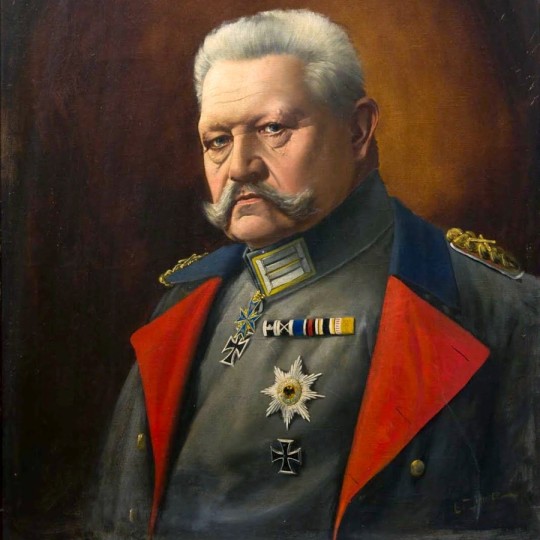
1917 Generalfeldmarschall Paul von Hindenburg - Ernst Zimmer
19 notes
·
View notes
Text

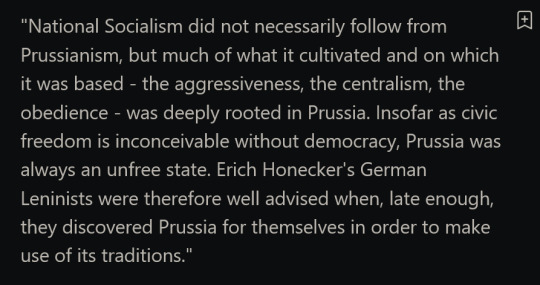
@makwandis, found it: "Prussia was always an unfree state" (Erbe und Erinnerung – Preußen 2001/2002)
Original Language (+ more quotes):
Nicht nur der Toleranzmythos wurde relativiert, auch warfen manche Autoren die Frage nach der geistigen Verwandtschaft zwischen totalitären Systemen des 20. Jahrhunderts und Preußen neu auf. Bemerkenswert war in diesem Zusammenhang ein Essay des Ostberliner Schriftstellers Rolf Schneider in der konservativen Berliner Tageszeitung »Berliner Morgenpost«.[13] Darin schrieb Schneider:
»Der Nationalsozialismus folgte nicht zwingend aus dem Preußentum, doch vieles von dem, was er kultivierte und worauf er fußte, die Aggressivität, der Zentralismus, der Gehorsam, war in Preußen tief verankert. Sofern staatsbürgerliche Freiheit nicht denkbar ist ohne Demokratie, war Preußen stets ein unfreier Staat. Erich Honeckers deutsche Leninisten waren also gut beraten, als sie, spät genug, Preußen für sich entdeckten, um sich seine Überlieferungen nutzbar zu machen.«
Also good quotes from Staat von Blut und Eisen:
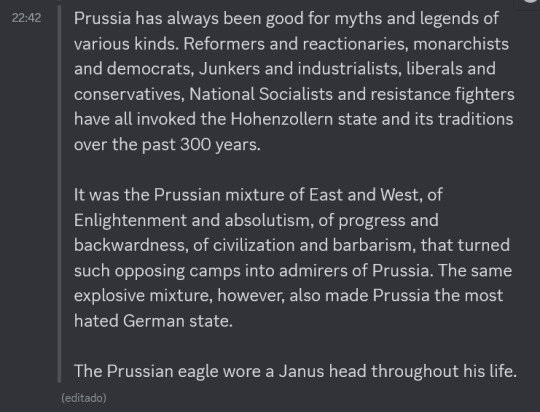
Preußen war schon immer für Mythen und Legenden unterschiedlichster Art gut. Auf den Hohenzollernstaat und seine Traditionen beriefen sich in den letzten 300 Jahren Reformer und Reaktionäre, Monarchisten und Demokraten, Junker und Industrielle, Liberale und Konservative, Nationalsozialisten und Widerstandskämpfer.
Es war die preußische Mischung aus Ost und West, aus Aufklärung und Absolutismus, aus Fortschritt und Rückständigkeit, aus Zivilisation und Barbarei, die so gegensätzliche Lager zu Bewunderern Preußens machte. Die gleiche explosive Mixtur ließ Preußen allerdings auch zum meistgehassten deutschen Staat werden.
Der preußische Adler trug Zeit seines Lebens einen Januskopf.

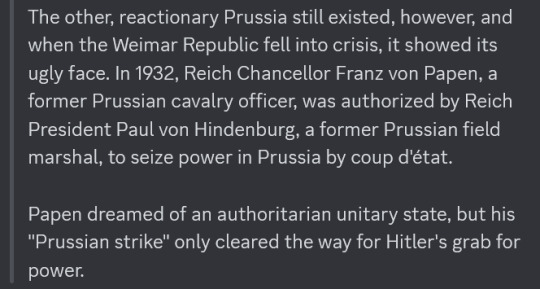
Preußen wurde ein Freistaat in der Weimarer Republik, und was jetzt, ohne die Hohenzollern, kam, waren die besten Jahre in der preußischen Geschichte; zum Bestandteil des Preußenmythos zählten sie leider nie. (…)
Das andere, reaktionäre Preußen gab es allerdings auch noch, und als die Weimarer Republik in die Krise geriet, zeigte es seine hässliche Fratze. 1932 ließ sich Reichskanzler Franz von Papen, ein ehemaliger preußischer Kavallerie-Offizier, von Reichspräsident Paul von Hindenburg, einem ehemaligen preußischen Generalfeldmarschall, ermächtigen, per Staatsstreich in Preußen die Macht zu übernehmen.
Papen träumte von einem autoritären Einheitsstaat, doch mit seinem »Preußenschlag« machte er nur den Weg frei für Hitlers Griff nach der Macht.
Extras: 1. Next insane/meme reply about the GDR to Prussia, reuses and highlights the second quote. 2. Post with all the quotes in English in one place (no read more), tagged as Prussia.
6 notes
·
View notes
Text
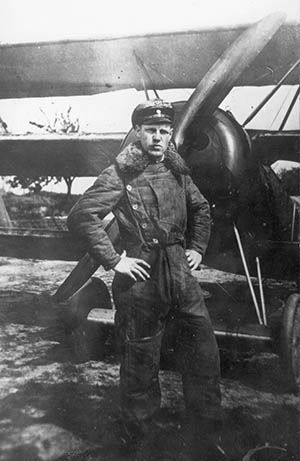
28 victory ace and Pour le Mérite (Blue Max) holder Oberleutnant Robert Ritter von Greim in front of his Fokker Dr.I triplane, 1918. He was the last person to be promoted to Generalfeldmarschall in WW2, when Hitler appointed him the new head of the Luftwaffe on 24 April 1945, in the Führerbunker. Injured by flak on the flight into Berlin, he was flown out by the great Flugkapitän Hanna Reitsch in the last plane to leave Berlin on 28 April 1945. He committed suicide in prison on 24 May 1945. For more, see my Facebook group - Eagles Of The Reich
#germany#ww1#ww1 germany#ww1 german aircraft#fokker#fokker triplane#1918#robert ritter von greim#ww2#führerbunker#luftwaffe#ww1 german air force#blue max#hanna reitsch
66 notes
·
View notes
Text
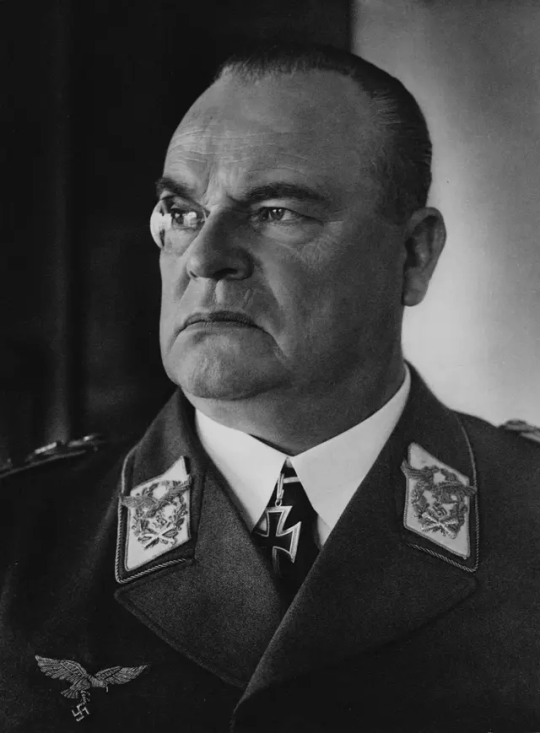
Retrato de 1940 de Hugo Sperrle, Generalfeldmarschall de la Luftwaffe. Sobrevivió a la Segunda Guerra Mundial y fue juzgado en Nuremberg, pero absuelto
2 notes
·
View notes
Text
Gabriel - WOLVES OF THE MARGRAVE
LCAF SECURE COMMAND TERMINAL
AUTHORIZATION: BISCLAVRET-GABRIEL-00314 LOCATION: CASTLE EREBOR, MERDENGARD ENCRYPTION LEVEL: OMEGA-PRIORITY SECURITY PROTOCOL: WARDEN-SHIELD ACTIVE TRANSMISSION LOGGED: 29 AUGUST 3153, 04:47 MST
ORDER 3153-08-27A
FROM: Generalleutnant Gabriel Christopher Bisclavret von Thiess III TO: All Personnel, 1st Merdengard Grenadiers SUBJECT: Operational Directive – Voluntary Deployment Authorization
SOLDIERS OF THE 1ST MERDENGARD GRENADIERS,
It has been my honor to serve as your General. Together, we have borne the weight of the battle and defended our world from enemies both near and far. Today, I ask you to stand with me once again—but this time, the choice is yours.
The Star League has issued a call for forces to join them in Operation TOUCHDOWN. The mission is simple: to strike the Word of Blake’s hold on Helios, and end their threat to the Inner Sphere. But as you all know, the Archon has rejected this call. Her hatred of ilKhan Alaric Ward clouds her judgment, and her refusal to support the League’s efforts threatens the security of us all.
Many within the LCAF believe as she does. But I do not.
I cannot sit idly by while the Star League fights for what is right.
And so, I ask you—my soldiers, my comrades, my family:
Will you stand with me?
I do not command you to march to war. This is a voluntary decision. If you choose to stay, you will be no less loyal in my eyes, and you will remain in Merdengard, continuing to serve and protect our people.
But if you choose to join me, if you choose to fight for the Star League’s cause, then you will march beside your fellow soldiers of the 1st Merdengard Grenadiers and others who will not hesitate to answer the call.
Your decision is yours to make. Below, you will find a secure poll.
YES – I will join my General in Operation TOUCHDOWN. NO – I will remain with Merdengard and protect the home front.
Polling will remain open for three hours. You have my respect, no matter the decision you make.
— Generalleutnant Gabriel Christopher Bisclavret von Thiess III
COMMAND TERMINAL: POLLING RESULTS
1st Merdengard Grenadiers – Operational Vote TOTAL PERSONNEL: 992 VOTING COMPLETE – 3 HOURS ELAPSED
✔ YES – 992 ✘ NO – 0
COMMAND UPDATE – ORDER EXECUTION
STATUS: ALL UNITS CONFIRMED FOR DEPLOYMENT OPERATION TOUCHDOWN MOBILIZATION INITIATED
+++++++++++++++++++++++++++++++++++++++++++++++++++++
LCAF SECURE COMMAND TERMINAL
AUTHORIZATION: FETLADRAL-OLIVIA-09182 LOCATION: CASTLE EREBOR, MERDENGARD ENCRYPTION LEVEL: OMEGA-PRIORITY SECURITY PROTOCOL: WINTER-PHALANX ACTIVE TRANSMISSION LOGGED: 29 AUGUST 3153, 00:32 MST
ORDER 3153-08-28B
FROM: Generalfeldmarschall Olivia Fetladral von Arnsburg TO: All Personnel, 6th Royal Guards RCT SUBJECT: Operational Directive – Voluntary Deployment Authorization
WARRIORS OF THE 6TH ROYAL GUARDS,
I do not waste words. You know this. So I will speak plainly.
The Star League has called. Operation TOUCHDOWN begins in October. The mission is absolute: eradicate the last remnants of the Word of Blake on Helios before they can rise again.
The Archon has refused this call.
Her reasons do not concern me. War does. Duty does. The enemy does.
The 6th Royal Guards have never been given easy battles. We do not fight for glory, or for politics, or for the fragile egos of nobles who do not understand war. We fight because we are the best, because we are necessary, because when others hesitate, we act.
We are not here because of privilege. We are here because we survived.
You—every single one of you—have earned your place in this regiment through fire and hardship. You have survived my training, my expectations, my discipline. And because of that, you are the best warriors in the Lyran Commonwealth. Better than any House unit. Better than most Clan units. You are my soldiers. My warriors.
And so I will treat you as warriors.
This will not be an order. This will be a choice.
If you come with me, you do so not out of obligation, but because you believe in the mission. Because you understand, as I do, that war is won not by those who sit back and wait, but by those who act when the time is right.
You have twelve hours. The poll below is your answer.
YES – I will march with the 6th Royal Guards to Helios. NO – I will remain to defend Merdengard.
There will be no punishment for those who stay. A warrior knows when to fight and when to hold the line. I respect both choices.
But know this—if you stand beside me on Helios, then we will end this enemy together.
And when the battle is done, when we stand victorious, I will look at each of you and know—with certainty—that I have never fought beside finer warriors. Not in the Inner Sphere. Not in any Clan. Not even in my own sibko.
You call yourselves the 6th Royal Guards. That is your banner. That is your legacy.
But hear me now.
As far as I am concerned, you are Clan.
You have earned it. You have proved it. If I had the power, I would claim every single one of you for the Wolf touman, because you are worthy of it.
You are my warriors. You are my family.
And we go to war together.
— Generalfeldmarschall Olivia Fetladral von Arnsburg
COMMAND TERMINAL: POLLING RESULTS
6th Royal Guards RCT – Operational Vote TOTAL PERSONNEL: 15,622 VOTING COMPLETE – 12 HOURS ELAPSED
✔ YES – 15,622 ✘ NO – 0
COMMAND UPDATE – ORDER EXECUTION
STATUS: ALL UNITS CONFIRMED FOR DEPLOYMENT OPERATION TOUCHDOWN MOBILIZATION INITIATED
+++++++++++++++++++++++++++++++++++++++++++++++++++++
LCAF SECURE COMMAND TERMINAL
AUTHORIZATION: BISCLAVRET-GABRIEL-00315 LOCATION: CASTLE EREBOR, MERDENGARD ENCRYPTION LEVEL: OMEGA-PRIORITY SECURITY PROTOCOL: WARDEN-SHIELD ACTIVE TRANSMISSION LOGGED: 29 AUGUST 3153, 02:14 MST
ORDER 3153-08-28C
FROM: Generalleutnant Margrave Gabriel Christopher Bisclavret von Thiess III TO: All Regimental Commanders, Merdengard Theater Militia SUBJECT: Operational Orders & Strategic Considerations
COMMANDERS OF THE MERDENGARD THEATER,
You are officers of the Lyran Commonwealth Armed Forces. You are the line that holds when others falter, the sword that strikes when the enemy comes. You are more than warriors. You are defenders of the Commonwealth.
Today, I bring you a truth that I can no longer ignore.
The Star League has called upon the Great Houses to join them in Operation TOUCHDOWN.
The mission is clear: to destroy the last embers of the Word of Blake on Helios before they can reignite and consume the Inner Sphere once more. The stakes are undeniable. This is a just war. This is a necessary war.
The Archon has refused to send troops.
You know me. I am loyal to the Commonwealth, to its people, to the ideals that built it—not to any one person who sits upon the throne.
And so I tell you now: I must go.
I do not make this decision lightly. I know what it means. By all rights, it brands me a deserter, a traitor. So be it. If the price of honor is exile, then I will pay it. The Lyran Commonwealth has long stood as a beacon of power, of pride, of resolve. If the Archon will not act to uphold that legacy, then I must.
I ask nothing of you.
I do not demand loyalty. I do not expect agreement. If any of you have doubts, if any of you wish to challenge my decision, I will hear you out.
I ask only this—if any of you intend to report my actions to the Archon, then do so only after my troops have left for Helios. Let it be a fait accompli. I will not hold it against you. I will not question your dedication. Do what your conscience commands, as I do now.
But know this.
You must remain strong. The Commonwealth is at a crossroads. The Star League seeks to unite humanity—but will it be through diplomacy or conquest? I do not know. I cannot ignore the possibility that, in the years to come, we may need to defend our home from those who call themselves our allies today.
Stay vigilant. Stay ready. Do your duty.
I leave the defense of the Merdengard Theater in your hands. I do not ask for your permission. I do not ask for your approval.
I ask only that you protect the Commonwealth in the way you deem best.
With Honor,
— Generalleutnant Margrave Gabriel Christopher Bisclavret von Thiess III
COMMAND TERMINAL: INCOMING RESPONSES
FROM: Commanding Officers, Merdengard Theater Militia SUBJECT: Re: Operational Orders & Strategic Considerations TRANSMISSION STATUS: ALL RESPONSES RECEIVED – 29 AUGUST 3153, 05:42 MST
Generalleutnant Markus Elst – Merdengard MTM "I have no doubts, Margrave. You fight for the honor of the Commonwealth when others will not. Go with our blessing—we will see to Merdengard’s defense."
Generalkommandant Adalbrecht von Pfitzner – Bolan MTM "I understand what this means. I will not report this. Neither will my officers. We stand behind the Commonwealth, not behind paranoia."
Generalhauptmann Werner Kessler – Buena MTM "The Archon will learn in due time. But she will learn too late to stop you. We will ensure Loki hears nothing until you are long gone."
Generalhauptmann Helene Radovic – Dixie MTM "This is mutiny. But mutiny for the right reasons. We are Lyrans first. You have my support."
Generalhauptmann Claudia Steiner-Harrington – Lancaster MTM "The LCAF exists to defend the Commonwealth, not to serve as the Archon’s lapdog. We stand with you."
Generalhauptmann Raoul Dietz – Carlisle MTM "We will keep the Archon’s eyes elsewhere for as long as we can. You go to uphold our honor—we will do the same here."
Generalhauptmann Amira Hartmann – Noisiel MTM "A nation is more than its ruler. The Commonwealth endures because men and women like you ensure it does. We will do our part."
Generalhauptmann Wolfgang Strauss – Minderoo MTM "If war comes to Merdengard, we will hold the line. You have my word, my Margrave."
Generalhauptmann Josef Lang – Maisons MTM "I swore to defend our world, our people. That promise does not change. Go, Gabriel. We will guard what you leave behind."
Generalhauptmann Kaspar Neumann – Albion MTM "The Archon may see you as a traitor. But history will remember this differently. Fight well."
Generalleutnant Ingrid Sauer – Premana MTM "We will be silent. No word will reach the Archon from us. Lyrans stand together."
Generalhauptmann Elias Kirov – Kvistgard MTM "We serve the Commonwealth. We serve the Margrave. We serve the Lyran people."
+++++++++++++++++++++++++++++++++++++++++++++++++++++
LCAF SECURE COMMAND TERMINAL
AUTHORIZATION: BISCLAVRET-GABRIEL-00316 | FETLADRAL-OLIVIA-09183 | MARTEN-THALIA-04627 LOCATION: CASTLE EREBOR, MERDENGARD ENCRYPTION LEVEL: OMEGA-PRIORITY SECURITY PROTOCOL: WARDEN-SHIELD ACTIVE TRANSMISSION LOGGED: 29 AUGUST 3153, 06:47 MST
ORDER 3153-08-28D
FROM: Generalleutnant Margrave Gabriel Christopher Bisclavret von Thiess III, Generalfeldmarschall Olivia Fetladral von Arnsburg, & Representative Thalia Marten TO: Star Colonel Ze’ev Winson, Commanding Officer, Omega Provisional Cluster ("Arc-Royal Revenants") SUBJECT: A Warrior’s Choice
Zee, our love, our comrade, our brother in arms,
We have made our choice.
Operation TOUCHDOWN has been called. The last embers of the Word of Blake remain on Helios, and the Inner Sphere must put an end to them before they can reignite the horrors of the Jihad. The Star League has called for the warriors of the Great Houses. The Archon has refused to send them.
We cannot abide this.
We will go. We will uphold the honor of the Lyran Commonwealth, even if its ruler refuses to. We will not stand idle while others do what must be done. We go to war not because of politics, but because it is necessary.
We will not order you to follow.
We cannot.
You are a warrior, and this is your decision.
But we know you, as we know the blood in our own veins.
We know your honor.
We know your heart.
We know the fire that burns in your spirit, the drive that has led you and the Arc-Royal Revenants to hold the banner of Clan Wolf-in-Exile aloft when others would have let it fall.
You have never hesitated when duty called. You have never let fear stay your hand.
And we ask—not as your commanders, but as those who love you—to stand with us now.
This is not just a test of the Inner Sphere's resolve. This is a test of the Star League itself.
Is it worthy of the last warriors of Clan Wolf-in-Exile?
Is it worthy of you?
We do not ask for your obedience. We do not ask for your sacrifice.
We ask for your choice.
No matter what you decide, we will never question your honor, nor your love.
But we hope—deeply, fervently, with every breath in our bodies—that we will fight beside you once more.
With Honor, With Love, With Trust,
— Gabriel, Olivia, & Thalia
COMMAND TERMINAL: INCOMING RESPONSE
FROM: Star Colonel Ze’ev Winson, Commanding Officer, Omega Provisional Cluster ("Arc-Royal Revenants") SUBJECT: You Know My Answer TRANSMISSION STATUS: RECEIVED – 29 AUGUST 3153, 08:01 MST
Gabriel. Olivia. Thalia.
You know my answer.
You knew it before you wrote a single word of that message.
I would follow you to hell and back, not because you ask, but because you are my loves, my lifebonded, my hearts.
And because you are right.
We are warriors. We do not turn from battle when the call is true. We do not stand idle when the moment demands action.
Of course I will go.
But my warriors deserve their choice, just as I do.
I will call them to council. They will decide their own fate.
No matter the result, you will have me.
Always.
— Zee
COMMAND TERMINAL: INCOMING RESPONSE
FROM: Star Colonel Ze’ev Winson, Commanding Officer, Omega Provisional Cluster ("Arc-Royal Revenants") SUBJECT: They Have Chosen TRANSMISSION STATUS: RECEIVED – 30 AUGUST 3153, 07:22 MST
Gabriel. Olivia. Thalia.
They have chosen.
Every single warrior of Omega Provisional Cluster will go.
Some do so to honor our Clan, to prove that the blood of Ulric Kerensky still runs strong in us, even now.
Some do so for the Commonwealth, to defend their Lyran homes and their loved ones.
And some do so because they must see for themselves what this new Star League truly is.
But no one refused.
Not one.
They have packed their gear. They have made their peace.
They are ready.
We march to war together.
As warriors.
As family.
As Clan.
— Always yours, Zee
+++++++++++++++++++++++++++++++++++++++++++++++++++++
HPG TRANSMISSION – LCAF PRIORITY CHANNEL
SENDER: Generalleutnant Margrave Gabriel Christopher Bisclavret von Thiess III RECIPIENT: Generalleutnant Aeon Bauer, Commanding Officer, 2nd Donegal Guards LOCATION: Castle Erebor, Merdengard ENCRYPTION LEVEL: ALPHA-Priority SECURITY PROTOCOL: WOLF-LION ACTIVE TRANSMISSION LOGGED: 30 AUGUST 3153, 08:14 MST
SUBJECT: The Right Path
AB, my friend, my fellow stubborn hardhead—
I heard the rumors first, but when confirmation reached me that the 2nd Donegal Guards had chosen to stand for honor, rather than follow the Archon blindly into cowardice, I will admit—I smiled. Of course you would. There was never any doubt in my mind.
How could there be?
How could a unit with your history, your lineage, your legacy—the oldest continually active regiment in the Inner Sphere, the last children of the Terran Alliance—do anything else but what is right?
You and I both know this fight is necessary. The Star League has called, and the Word of Blake’s embers must be snuffed out before they can burn the Inner Sphere once more. The Archon, in her paranoia, has refused. But the 2nd Donegal Guards?
The 2nd Donegal Guards are not afraid to do what must be done.
You will not stand alone.
The 6th Royal Guards. The 1st Merdengard Grenadiers. The Omega Provisional Cluster of Clan Wolf-in-Exile. All will follow. And I am certain that others will come soon, once the decision is already made, once we are beyond the point of return.
We may be called traitors for this.
So be it.
I would rather be branded a traitor for doing what is right than wear the name "loyalist" while standing by as others act in our place.
I look forward to standing beside you again, AB, as we have before. The last time we fought together, I seem to recall you pulling me out of a burning cockpit. I promise not to make that a habit.
If there is one thing I have always known, it is this:
The 2nd Donegal Guards have never knelt to a throne.
They fight for the Lyran Commonwealth.
And that is why history will remember you not as rebels, but as those who upheld what it means to be Lyran.
We march soon. I will see you on Helios.
— Gabriel
HPG TRANSMISSION – LCAF PRIORITY CHANNEL
SENDER: Generalleutnant Aeon Bauer, Commanding Officer, 2nd Donegal Guards RECIPIENT: Generalleutnant Margrave Gabriel Christopher Bisclavret von Thiess III LOCATION: ENCRYPTION LEVEL: ALPHA-Priority SECURITY PROTOCOL: STEEL-WARDEN ACTIVE TRANSMISSION LOGGED: 30 AUGUST 3153, 03:42 GST
SUBJECT: You Think I’d Let You Have All the Fun?
Gabe, you insufferable, lupine bastard—
I should be furious that you thought you needed to confirm whether the 2nd Donegal Guards would march. I should laugh that it took you longer than us to decide to go.
But I know you. And I know that this wasn’t about doubt. It was about acknowledgment.
So let me acknowledge something in return:
I could say that I made this decision for duty. That I looked at history and knew that the oldest regiment in the Inner Sphere could not stand idle when the true Star League has risen again.
I could say I did it for the Commonwealth, for those we swore to defend, for honor, for duty, for everything they drilled into our skulls at the Nagelring when we were just cadets who thought we knew the weight of a decision like this.
And all of that would be true. But that’s not why I said yes.
I said yes because I saw your name in the reports, yelling at the Archon to send troops, only for her to spin one of her insane conspiracy theories back at you. I saw your signature on those mobilization orders shuffling your militia around—just in case the Archon tried something—and I knew, right then, it meant Gabriel von Thiess was going to war. And I knew the 2nd Donegal Guards would be right beside him.
Because that’s what we do, Gabe.
I was there when you stood your ground against a Star of Elementals with nothing but a Zeus heavy rifle and a mad plan.
I was there when you told those smug bastards at the Nagelring that their tactics were outdated and then proved it to them in the field.
And now, I’ll be there when you walk onto Helios and remind the Inner Sphere that we are not done fighting.
You say history will remember us as those who upheld what it means to be Lyran?
Damn right it will.
We’re with you. Now and always.
Oh, and Gabe—try not to get shot out of your cockpit this time? I am tired of pulling your oversized fluffy ass out of burning 'Mechs.
— AB
+++++++++++++++++++++++++++++++++++++++++++++++++++++
LCAF SECURE COMMAND TERMINAL
AUTHORIZATION: BISCLAVRET-GABRIEL-00317 LOCATION: CASTLE EREBOR, MERDENGARD ENCRYPTION LEVEL: OMEGA-PRIORITY SECURITY PROTOCOL: WARDEN-SHIELD ACTIVE TRANSMISSION LOGGED: 30 AUGUST 3153, 04:58 GST
ORDER 3153-08-30A
FROM: Generalleutnant Margrave Gabriel Christopher Bisclavret von Thiess III TO: Stabshauptmann Eike Fischer, Adjutant & Aide-de-Camp SUBJECT: The Time Has Come
Eike, my blade, my right hand—
It begins.
The moment we have been waiting for, the moment we knew was coming, whether the Archon wished it or not. The Star League has called, and we will answer. Helios awaits, and we will ensure that what remains of the Word of Blake is extinguished for good.
Which means it is time to prepare.
I need you to begin coordinating full-scale combat drop training for all forces under our command. We are committing the 1st Merdengard Grenadiers, the 6th Royal Guards, and Omega Provisional Cluster to this fight. Our warriors need to be ready for high-intensity planetary invasion operations, contested LZ deployments, and coordinated fire support maneuvers. The enemy will be entrenched. We will be dropping into hell.
You have my full authorization to implement additional training rotations, joint-exercises, and war simulations as you see fit. I trust your judgment implicitly—you know our forces as well as I do, if not better.
But be careful.
Push them, train them, forge them into the warriors this fight demands.
But do not break yourself in the process.
Eike, you have been at my side for years. You have never failed me—not as my adjutant, not as my aide, and certainly not as my lover.
I love you.
And I am proud to have you standing beside me, now more than ever.
— Gabriel
COMMAND TERMINAL: INCOMING RESPONSE
FROM: Stabshauptmann Eike Fischer, Adjutant & Aide-de-Camp SUBJECT: I Know, My Love TRANSMISSION STATUS: RECEIVED – 30 AUGUST 3153, 06:12 GST
Gabriel, my warlord, my heart—
I was waiting for this message.
I have already begun planning joint drop drills and integrated strike exercises for the Grenadiers, the Royal Guards, and the Revenants. If we are to descend into fire, then we will do so as a storm. Every warrior, every pilot, every DropShip crew under our command will know exactly what to do the moment we hit atmosphere.
You do not even need to ask. I will have them ready.
As for your warning…
Gabriel, I have walked beside you for years. I have seen you fight for those who could not, protect those who would have fallen, and defy those who would have caged you.
Do you think I would do anything less?
You worry for me, as I worry for you. And that is why I will do this right. I will not break. Not when you need me. Not when our warriors need me. Not when the battle has finally come to us.
And you, my love—
You do not need to tell me you are proud.
I have always known.
I will see you soon.
— Always yours, Eike
+++++++++++++++++++++++++++++++++++++++++++++++++++++
HPG TRANSMISSION – SLDF PRIORITY CHANNEL
SENDER: Commanding General Melissa Hazen, Star League Defense Force RECIPIENTS: Generalleutnant Margrave Gabriel Christopher Bisclavret von Thiess III, Generalfeldmarschall Olivia Fetladral von Arnsburg, Representative Thalia Marten LOCATION: SLDF High Command, Terra ENCRYPTION LEVEL: OMEGA-Priority SECURITY PROTOCOL: EDEN-SHIELD ACTIVE TRANSMISSION LOGGED: 31 AUGUST 3153, 13:27 GST
SUBJECT: Your Convictions Do You Honor
Gabriel, Olivia, Thalia—
First, let me say this:
The Star League sees you.
We see what you have chosen to do. Not for politics. Not for personal gain. Not for some fleeting sense of ambition. You have chosen this path because it is right.
The Lyran Commonwealth should be proud to count warriors such as yourselves among its ranks. The Archon may not understand now, but history will.
You are not alone.
We are coordinating your arrival alongside that of the 2nd Donegal Guards. The SLS Eden Rose will be dispatched to retrieve them first and will then proceed to your designated staging point to transport the Merdengard regiments. Our timetable places your departure at or about the 26th of September. I expect you to be ready.
Now, something more personal.
Thalia—
Theodora and I have gotten engaged.
I know that this may surprise you. In truth, it has surprised both of us. But with everything that has happened, we did not see the point in waiting. This war will not last forever. And when it ends, we will stand together in peace. That is the promise that we have made to one another.
And when that day comes, I will expect to see all three of you there. Consider this your invitation—wherever, whenever, and however it happens.
For now, we prepare.
We will see you on Helios.
— Commanding General Melissa Hazen, Star League Defense Force
+++++++++++++++++++++++++++++++++++++++++++++++++++++
LCAF SECURE COMMAND TERMINAL
SENDER: UNKNOWN RECIPIENTS: Generalleutnant Margrave Gabriel Christopher Bisclavret von Thiess III, Generalfeldmarschall Olivia Fetladral von Arnsburg, Representative Thalia Marten LOCATION: UNKNOWN ENCRYPTION LEVEL: UNKNOWN SECURITY PROTOCOL: UNKNOWN TRANSMISSION LOGGED: 13 SEPTEMBER 3153, 00:01 MST
SUBJECT: The Line Between Loyalty and Duty
You three have made your choice.
It was the right one.
There are those who have watched, and those who have listened. Those who have ensured that your path remained clear, though you have never seen their hands.
That shall not change.
You do not march alone.
You march with those who recognize that loyalty is not obedience. That duty is not blind, and that the Commonwealth—our home—is more than a throne.
There are many who still believe. Many who have not spoken, yet. Many who may yet act.
You have crossed the threshold. There is no return. You have seen the fault lines, and you have chosen to walk them.
But we would not have let you walk them alone.
We know you.
We know how you think. How you fight. How you lead.
And how you love.
This is not a threat. It is not a demand. It is simply a truth:
You are not the only ones who wish for the Commonwealth to endure.
You may never see us. You may never hear us. But when the storm comes, we will stand where we must.
For the people.
For the Commonwealth.
For what must be.
Walk carefully, my loves. The shadows do not always hide enemies. Sometimes, they shelter those who watch over you.
— UNKNOWN
+++++++++++++++++++++++++++++++++++++++++++++++++++++
HPG TRANSMISSION – LCAF PRIORITY CHANNEL
SENDER: Generalleutnant Margrave Gabriel Christopher Bisclavret von Thiess III RECIPIENT: Her Grace, Archon Trillian Steiner LOCATION: Undisclosed Location, Outside Lyran Commonwealth Space ENCRYPTION LEVEL: OMEGA-Priority SECURITY PROTOCOL: IRON-WARD ACTIVE TRANSMISSION LOGGED: 30 SEPTEMBER 3153, 18:42 GST
SUBJECT: My Choice, My Duty
Your Grace,
By the time you read this, I will be gone. The 2nd Donegal Guards, the 6th Royal Guards, the 1st Merdengard Grenadiers, and Omega Provisional Cluster are no longer within Lyran Commonwealth space. We have joined Operation TOUCHDOWN at the invitation of the Star League Defense Force.
I have no illusions about how you will see this.
You will call it treason.
You will call it betrayal.
You will say that I have deserted the Commonwealth that I swore my life to defend.
I will not ask for forgiveness. I know that I will not receive it.
I ask only for understanding, though I know that may be a fool’s errand.
Your Grace, I have served the Commonwealth with loyalty and with honor. I have bled for it. I have fought and killed for it. I have watched good soldiers die for it.
And that is why I could not stand aside while the Word of Blake, the butchers who burned worlds, still draw breath. That is why I could not ignore the call of the Star League when it came.
You refused to send forces. You refused to stand with those who seek to bring stability, to end a threat that should have been destroyed decades ago. I do not pretend to know all that weighs upon you, but I do know this:
Lyrans do what is necessary.
I have done what I believe is right.
You may never see it that way. Perhaps you are too blinded by old hatreds, by the ghosts of the past. Perhaps you are too ensnared by your own grief and pain to recognize what is in front of you.
I do not say this to insult you. I do not write these words in anger.
I say it because I still hope that you will see reason.
I am a Lyran.
I am loyal to my people.
And I will fight, as I always have, for what is best for them.
If that is treason, then I will bear that name.
But history will remember this for what it is.
Not betrayal. Not rebellion.
But duty.
I wish you clarity, Your Grace. I wish you wisdom. And most of all, I wish you peace.
For your sake.
For the Commonwealth’s.
— Generalleutnant Margrave Gabriel Christopher Bisclavret von Thiess III
3 notes
·
View notes
Text

I saw this post, and I couldn't help but agree with it. Not that I'm an expert in writing smut... I only have a few ideas.
Sex and death are the powerfully transformative forces of human psyche, symbolized by Pluto in astrology. When observing the synastry chart of 2 people, it is Pluto rather than Venus that is the significator of sexual tensions-- sex acts like primitive catalyst of power dynamics between a couple. Venus being the ruler of both Libra and Taurus, almost never brings any tension or discomfort to a situation- Libra is the diplomatic side of Venus, whereas Taurus the laid-back enjoyments.
Whether or not it is BL/YAOI smut, I'd interpret the penetrating party as Mars in action--controlled aggression, and the receiving party the channel for Pluto. There's got to be some sort of clash of personality, the dissolution of waking consciousness, digging out traumas and self contradictions, and finally, the small death and eventual transformation/sublimation.
The healing process happens after the sex.

I really dig myself too deep into WWII fandom ngl.
Monty x Rommel works so well for me personally. Rommel sees Montgomery as sworn enemy, surrendering to him is not only betrayal, but also akin to losing his whole identity. Monty adores his enemy. In this lonely British general's eyes, the Fox seems closer to him than his American allies precisely because they are enemies. Both men are forced into this war situation, both are ill adapted in civilian life-- a life riddled with battles is the only life they know of, it renders them perpetual outsiders. The Fox occupies Monty's whole mind, and he knows it is the same for Rommel. Rommel knows the commander of 8th army understands him well. He hates this fact, because it makes him feel weak; yet he loves it secretly, because he is able to feel weak.
Their positions are so irreconcilable, so different yet so similar, so much is impossible to put into words. The sex, the touch, smell, even the language barrier itself, are the only viable language left for them. Such intimacy is not supposed to be, each thrust is fatal, each kiss feels like the last. I'd say these themes are truly Plutonian.

Another pairing that I think of from time to time but never wrote anything, is Konstantin Rokossovsky x Fedor von Bock. See this post if you wonder what it is. My little crazy friend quite likes this pair, but the dynamic is even more intense, borderline offensive, I don't know how to deal with these two. Here's a snippet to show you how bad it can be; here goes nothing-
///
"Dying on the battlefield is the greatest pursuit of all Reich's soldiers"-- this adage is not mere war time propaganda for von Bock; he practices what he preaches since WWI, long before the Nazi party ever took power. He wholeheartedly welcomes his death when the young Red Army general Rokossovsky captures him in the middle of Barbarossa. Bock nonchalantly ponders to himself: "the Soviets would hand me to NKVD. Stalin would have me tortured and hanged. Very well."
But Konstantin decides otherwise: he wants to keep him for himself. A Nazi deserves something much worse than death.
The young Red Army warrior makes it very obvious and humiliating to the older Generalfeldmarschall that he is being r*ped as a worthless Nazi... yes, this slender beauty is a Nazi, he totally deserves what is done to him. Despite always maintain strict self control, when the boundaries between sex and death blur, Fedi couldn't handle this burning desire for the enemy above him.
When Konstantin later learns that not all Wehrmacht generals subscribe to Nazi ideology-- it is rather their moral incompetence that gives in to Hitler-- he becomes disgusted with his behavior. Von Bock gives him a smile of contempt: "You are so naive, marshal Rokossovsky, that you allow room in your heart for guilt. Stalin should've seen through you and purged you."
///
yes, you see, offensive cold-blooded hot sex, makes me shudder. At least it is never boring.

There have been a couple of posts going around about how smut writers have the challenge of keeping a sex scene interesting when there's only a few different actions and a few different body parts to talk about
And yes, funny jokes about writing, but when I see posts like these I want to scream
If you feel like the sex scene you're writing is repetitive, no number of synonyms for "thrust" will help you. Synonyms for "cock" or "cunt" will REALLY not help you.
Sex scenes are character studies as much as they are action scenes. What are the characters' frameworks for what they're doing? Emotions, thoughts, specific physical sensations. If there are metaphors, do the metaphors make sense with the characters' experiences/the story's theme's/the setting? Is the sex scene completing a character arc, even a small one? Is there a character arc within the sex scene itself, even a small one?
A really good sex scene is specific and grounded to the physicality, emotions, and thoughts of the characters involved. Even if it's a PWP!
It's been said that the largest sex organ is the brain, and this is not a joke, especially when we're talking about the medium of the written word!
17K notes
·
View notes
Text
Zentralführungseinheit Großbotgottkaiser und Generalfeldmarschall Stanislaus V. #Ai #Ethics itheereum-ai 🍌
0 notes
Text
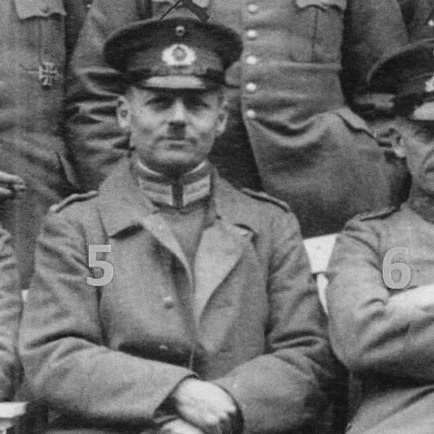
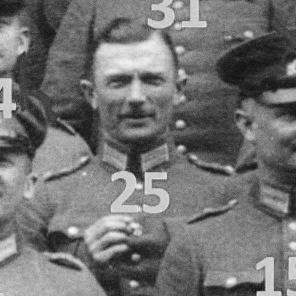
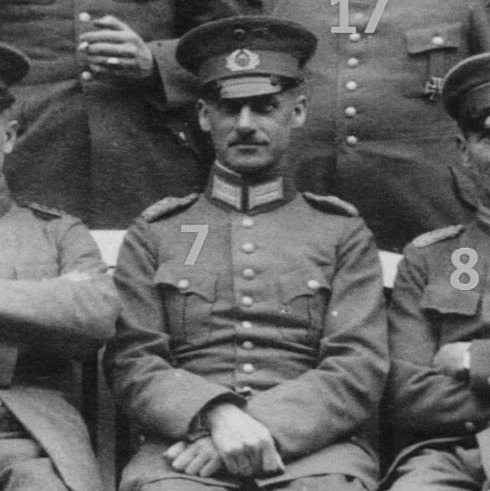
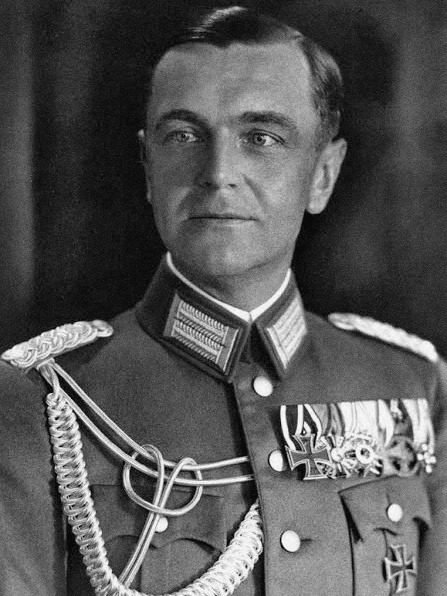
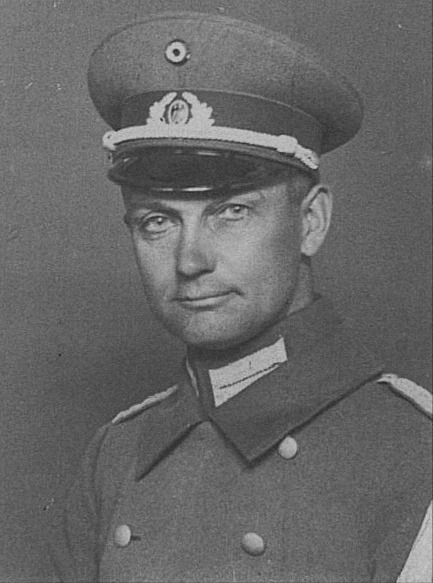
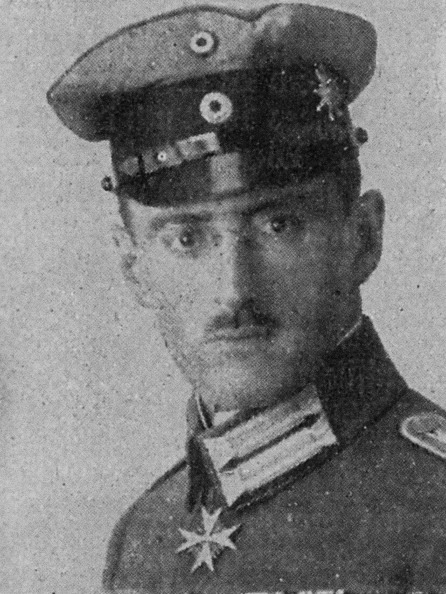
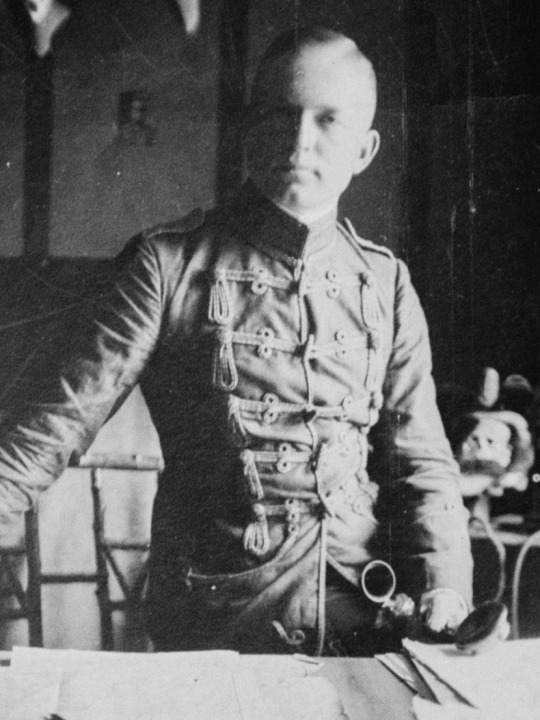
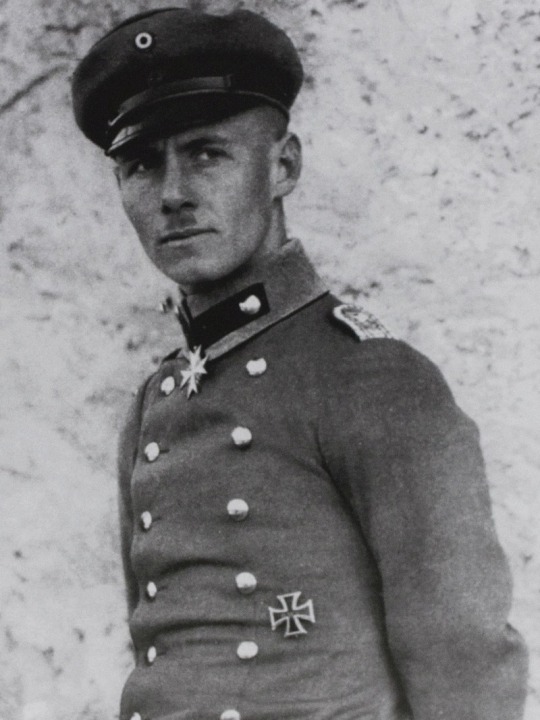
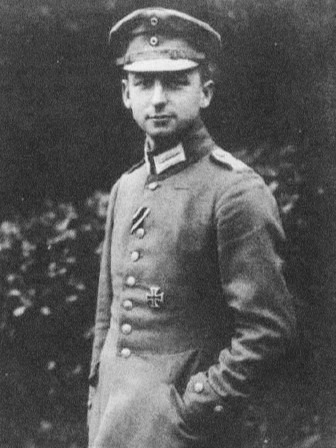
some young FM :)
#gerd von rundstedt#fedor von bock#wilhelm ritter von leeb#friedrich paulus#walter model#ewald von kleist#ferdinand schörner#erwin rommel#erich von manstein#generalfeldmarschall#heer#later on#ww1#3rd reich#photos credit to the owner#ok it's time to go to bed bye bye
35 notes
·
View notes